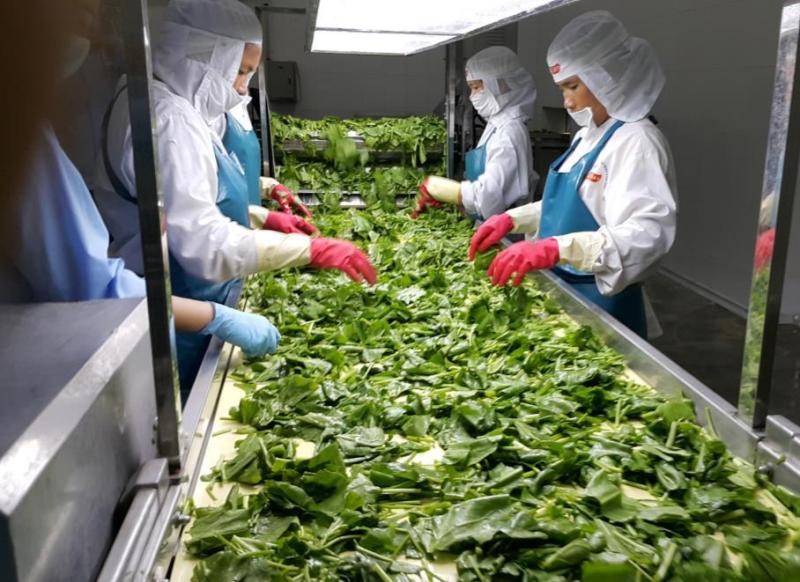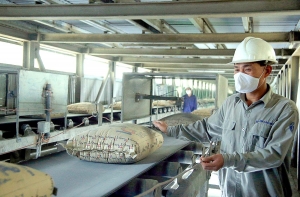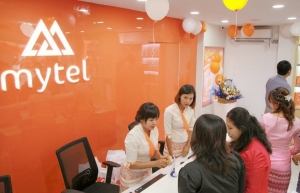Agri-businesses using deep processing to boost exports
GC Food JSC, Vietnam’s major aloe and coconut jelly maker, has been expediting deep processing, with products made from aloe and coconut, leveraging cutting-edge equipment and production lines.
GC Food chairman Nguyen Van Thu said that despite current unpropitious market conditions, the company still managed growth in export markets, growing an average 20-30 per cent.
 |
GC Food currently operates two plants: Canh Dong Viet plant specialised in aloe production with a scale of 150 tonnes of materials per day and an annual aloe production output surpassing 15,000 tonnes, and a coconut jelly production plant with an annual production output approximating 12,000-15,000 tonnes. GC Good’s aloe growing areas span 150ha.
This year, the company is set to develop an additional 50ha, and from 50-100ha more in 2024.
The company has also injected capital into doubling its aloe plant capacity to processing 300 tonnes of materials per day.
In other case, Lu Xuan Nguyen, CEO of Xuan Nguyen Group JSC, revealed that with deep processing, products made from bee honey and saffron are selling much better than in traditional unprocessed forms.
Xuan Nguyen has been teaming up with local farmers on developing more than 400ha material growing areas, ranging from seed provision, soil check, technical skills and consumption of output products.
This goes in parallel to hundreds of bee honey farms in localities across the country.
As of now, all Xuan Nguyen factories have engaged in deep processing, turning out 24 kinds of agricultural produce.
The company sells an average from 500,000-600,000 items of each kind per month.
The cases show that despite export hardships, there are firms making a big push in deep processing, resulting in securing a stable order intake.
The recipe for these firms is to closely attach material growing areas with processing plants, and have their own research and development team to create competitive products.
Pham Dinh Ngai, director of Tra Vinh Farm Co., Ltd. (Sokfarm), said that right from the inception, the company had paid due heed to research and development activities to create products matching market demands, and expedited high-tech investment for deep processing, such as vacuum condensed technology to retain a product’s minerals and original taste while extending shelf-life.
For instance, with coconut items, their shelf-life is from two to three weeks, yet for processed coconut flower honey, the product can be preserved from 18-24 months.
“Many people assume that building factories and investing in deep processing is very cost-intensive and unsuited to startups. In fact, it has helped Sokfarm to save countless expenses on product quality control, and from there building customer trust and winning customers,” Ngai said.
Processing plays a crucial role in the export agricultural product value chain, which mostly involves older equipment and technological lines.
In the current processed food structure, primarily processed items with low added value account for the lion’s share, from 70-85 per cent, while products with deep processing and high added value make-up from 15-30 per cent, depending on the specific product branches.
The current deep processing rate of many agricultural items remains limited, such as that coffee accounts for about 15 per cent, and fruits 10 per cent.
In rare instances, some products report a higher processing rate, such as 55-60 per cent for rice, 40 per cent for tea, 56 per cent for pepper, and sugarcane at 73 per cent.
During 2017-2022, 76 major projects on agricultural item processing valued more than $3.08 billion were expedited, and many production facilities have now come on production. This has spurred investment in the development of the agricultural processing industry in recent years.
 | Firms gearing up to boost exports Businesses are sparing no effort to enhance export performance in the face of lingering headwinds in both the global and domestic markets. |
 | Japanese firms plan to boost investment in Vietnam A series of Japanese enterprises plan to pour money into Vietnam as part of the expansion of industrial parks invested by Sojitz Corporation. |
 | Vietnamese firms boost outbound investment Investment experts discuss the threats and opportunities of Vietnam's overseas investment activities at the launch of a new book from the International Investment Study Institute on the subject. |
What the stars mean:
★ Poor ★ ★ Promising ★★★ Good ★★★★ Very good ★★★★★ Exceptional
Related Contents
Latest News
More News
- A golden time to shine within ASEAN (February 19, 2026 | 20:22)
- Vietnam’s pivotal year for advancing sustainability (February 19, 2026 | 08:44)
- Strengthening the core role of industry and trade (February 19, 2026 | 08:35)
- Future orientations for healthcare improvements (February 19, 2026 | 08:29)
- Infrastructure orientations suitable for a new chapter (February 19, 2026 | 08:15)
- Innovation breakthroughs that can elevate the nation (February 19, 2026 | 08:08)
- ABB Robotics hosts SOMA Value Provider Conference in Vietnam (February 19, 2026 | 08:00)
- Entire financial sector steps firmly into a new spring (February 17, 2026 | 13:40)
- Digital security fundamental for better and faster decision-making (February 13, 2026 | 10:50)
- Aircraft makers urge out-the-box thinking (February 13, 2026 | 10:39)

 Tag:
Tag:
























 Mobile Version
Mobile Version